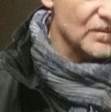Fabrizio Ulivieri's Blog, page 28
November 9, 2024
Universi paralleli e congiunti
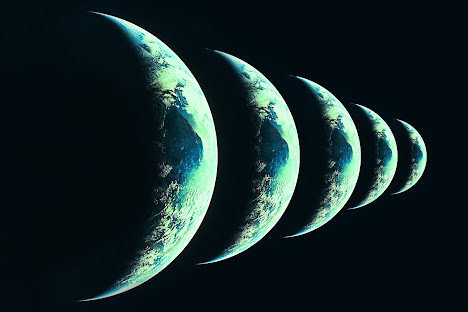
Hanno il volto di ognun che soffre - di donna o uomo.
Atti sbagliati che sian - giusti o disperati
Piangon del mondo grandezza sua dentro - un mondo interior.
Niente che grande di più sia. Disperazione
Loro ti mostrano stanchi e nulla commuove del santo
Mondo che vive in sé, più. Ma l'universo
Loro e vasto e enorme morrà in un giorno - destino
Tiene, e vivo e in sé - quello lo sa.
Tragica sorte dell' uomo esistere. Creare e poi
Essere nulla di qua, dove ha mani
mente posati e creduto durare per sempre qual Dio.
Io La prego che dia, Lei infine
Là ai mondi che amo di più quel durar suo futuro.
Se quei nomi che tre sono aldilà
Salvi farà, anche altri con sé porterà quella luce:
Giunto ognuno ne va di tre, e mai disgiunto è.
November 5, 2024
Perché tu sei andato?
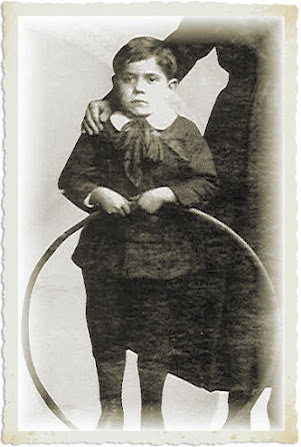
Perché? Perché? Perché tu sei andato
Via? Lontano ero quando sei
Partito solo. Io speravo, sai,
Che te rivisto avrei prima. Fretta
Avevi. Fretta di andare, tutta
La tua vita tu correvi. Fretta
Di finir questa vita che avevi,
L'unica data da quel Dio lontano
Dal mondo tuo. E che dirà di te?
Mi chiedo. Dio io non sono ma
Credo che l'hai bene vissuta. Bene
Gli hai voluto al tuo paese. Ma
Ti ha tradito. Tutto che potevi
Per la famiglia hai pensato. Tu
Hai fatto errori ma sapevi viver
Non come ogni piccol uomo. Hai
Fatto soffrire. Ma natura tua
Era - il marchio del tuo male era.
Del gatto nero la natura avevi.
La rabbia avevi di chi soffre sempre.
No, non piangevi la tua vita, mai.
La maledivi. Era tua nemica.
Era la bestia dentro te nascosta.
Ma il tuo cuore era vivo, puro,
Sincero. Paura ne aveva quella
Bestia, di quel cuore bambino, sai,
E che scontroso con te viaggia ormai.
November 3, 2024
November 2, 2024
Oltre i segni dell'Altro
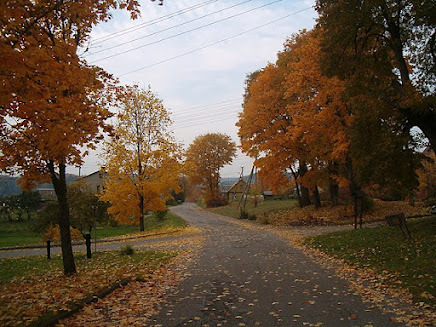
Che altro potevi più far, di così?
Hai fatto tutto - quello che potevi.
Che altro volevi fare altresì?
Che ti dimentichino mai temevi.
E tu gli hai - la vita dato loro
La vita che ora hanno - stesso sangue:
Nel ricordo del mio male scoloro,
Nel nulla del mio amore si estingue.
Nel freddo dell'autunno che arriva
Morde l'aria la pelle, piega il vento
Gl' alberi - e di rosso e giallo schiva
La chioma delle foglie è lamento.
Tutto cresce lontano - e nulla peggio
È, quando ciò che vive in te si fa
Sé e Altro diviene - un dileggio,
Un' irreparabil perplessità.
Eppure tu hai fatto tutto. Bene,
Male. Hai fatto quello che sapevi.
In tua valle di lacrime avviene.
E nulla di più grande mai potevi
Pensare, ma cercavi le parole.Così guardavi mute le stagioniPassare, per offrire quelle, soleAl dolore che dentro imprigioni.
Gott ist - aliquid quo nihil maius cogitari potest
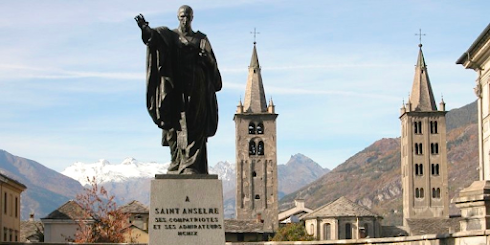
Der Nihilismus strebt nach einer Welt ohne Gott. Doch eine solche Welt kann nicht wirklich existieren. In unserer Zeit herrscht eine „Weltlosigkeit“ – eine Verleugnung des Realitätssinns. Das heißt, dass die Welt ohne eine göttliche Macht letztlich nicht bestehen kann.Die Welt braucht Gott.
Ohne Gott verliert die Welt ihre Tiefe und wird zu einem leeren Simulakrum – einem Abbild ohne wahre Substanz.
Die Erfahrung Gottes geschieht im Zuhören, denn Zuhören ist die Art und Weise, Gott zu begegnen
Der Ursprung solcher Gotteserfahrungen liegt oft in Bedeutungsvollen Erlebnissen: eine Krankheit, ein Unfall, der Verlust eines Elternteils oder Kindes, eine bedeutungsvolle Begegnung. In solchen Momenten "spricht" die Wirklichkeit eine tiefere Bedeutung, jenseits der bloßen Oberfläche, wie vorher. Hier bietet sich die Gelegenheit, auf die Stimme Gottes zu hören und sich im Hören zu üben.
Wie Anselm von Aosta sagt: Gott ist aliquid quo nihil maius cogitari potest – etwas, worüber hinaus nichts Größeres gedacht werden kann. Wenn das wahr ist, erkennen unsere Gedanken die Weite, die sie benötigen, um dem Herzen das Gefühl der göttlichen Gegenwart zu vermitteln. Das Herz wird zu einer Art „Übungsraum“, in dem es lernt, die Zeichen von Gottes Anwesenheit wahrzunehmen und seine Stimme zu hören.
Doch bevor das Herz auf diese Weise empfänglich wird, muss es eine Sehnsucht nach Gott entwickeln – den Glauben (fides). Diese Sehnsucht erwacht oft erst durch eine tiefgreifende Lebenserfahrung.
Da die Globalisierung „durch entleerte Zeichensysteme vorangetrieben wird, die sich selbst reproduzieren“ (Markus Gabriel, Der Sinn des Denkens), ist die Entwicklung dieser "Sehnsucht-nach" ein notwendiges Üben, das uns hilft, den Dingen wieder einen Sinn zu geben. Indem wir uns an das aliquid quo nihil maius cogitari potest halten, wird Bedeutung wieder als wahre, denkbare Essenz erfahrbar, die uns an die Präsenz des Göttlichen erinnert.
November 1, 2024
Fasting as a Re-appropriation of Your True Self
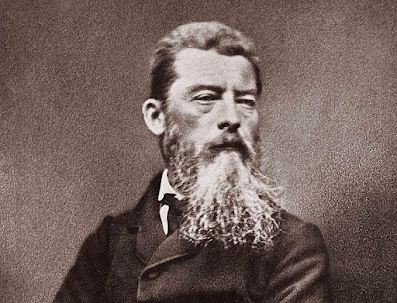
In fasting, there is a re-appropriation of your body. When you eat, you introduce external substances—elements from the outside—into your body.
It’s obvious that these substances act upon you, conditioning your body through chemical components that are distinct from its natural, internal chemistry.
But when you fast for many days, your body relies solely on what it can draw from within, fueled only by its own reserves.
For this reason, you may indeed perceive a re-appropriation of your body; you feel more centered, more grounded within yourself.
Feuerbach’s well-known adage, 'Der Mensch ist, was er isst'—'Man is what he eats'—rings true, but only in the sense that you are influenced by what you eat, which differs from who you truly are in and for yourself, as when you abstain from eating.
October 30, 2024
Quella chiamata tu sei - vivi con lei

Come esistere senza la più immediata ragione?
Come potrà poesia farti beato
Quando ne manchi la sua chiamata? Mi pare lontano
Vai allora e sai - Dio non ti basta.
Piccolo è l'orizzonte del mondo. E scolora. Lo sai.
S'apre infinito il buio sotto di te.
Baratro senza un fine ne vedi. E paura ne hai.
Temi che anche sarai tu una figura.
Altro sarai da quel che vivrai - di altro che te.
Quella chiamata tu sei - vivi con lei.
October 27, 2024
Lascerò a voi figure
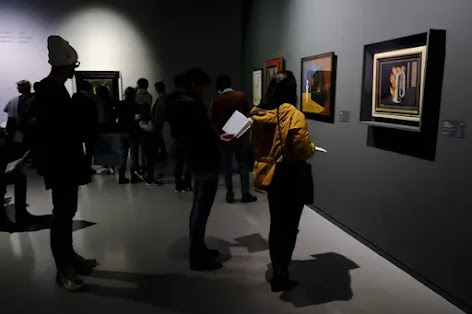
Penso al giorno che lascerò questo mondo.
Lo lascerò a tante figure e pochi uomini.
E io anche diverrò l'alone di una figura che era
e passata è, via.
O se un santo fossi stato, almeno nella fede
sarei stato ben radicato. La vita avrei donato
al più grande postulato.
Oh, fossi stato freddo o caldo, almeno.
Ma probabilmente sarò vomitato.
Lascerò, a voi figure, questo mondo.
Ma abbiate zelo e ravvedetevi.
Non fate la mia fine.
Corvi, che ho non amato,
il vostro ricordo porterò con me
ogni giorno avete a mio lato
camminato.
Figlie, il dolore della vostra distanza
porterò con me che vi ho amato.
Amore, porterò te con me, e la
notte verrò di nuovo a guardarti.
Fratello, ti auguro il bene
quello stesso che ti volevo - nei
tuoi undici anni.
Lituania, porterò con me la neve e il gelo
gli alberi secchi e neri coperti di corvi
scuri - e le foglie gialle e rosse dell'autunno.
Italia, la tua bellezza terrò nel cuore
ma anche il dolore di un popolo bacato
e imbecille - che nel nulla viveevangelizzato.
A quel suo domandar - di sé indovino
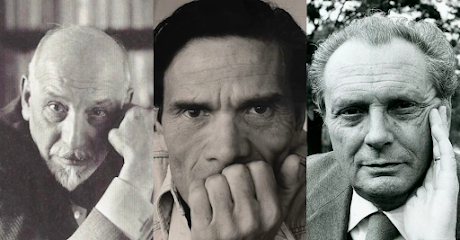
Se mi guardo allo specchio non son mica
Lui. Che solo un estraneo è quello.
È uno che non è me. Lo maledica
Natura! Di chi ero è zimbello.
Un estraneo guarda e mi sfida.
Davanti sta e offende - muto tarda.
È dei suoi contrari così avida
Natura? Nel molteplice si salda.
Vero, che pur cercando mai i limiti
Troverò di mia anima. Gli anni
Della mia vita, io, li sono tutti -
Tutti quei morti i loro vivi affanni
A cui io parlai lungo la via.
Tutti i loro occhi che guardai.
I corpi che amai e tuttavia
Più tardi poi lasciai e non più pensai.
Ecco io sono tutto il provato
Il pensato, sofferto e gioito
Che giorno dopo giorno scivolato
Via, dal bambino al vecchio s' è unito.
I trenta, i quaranta, i cinquanta...
Sono: il vecchio e ancora il bambino
Che ero sta in me. E sempre s'incanta
A quel suo domandar - di sé indovino.
October 26, 2024
Poetry in Itself Considered and Poetry as a Mirror Considered
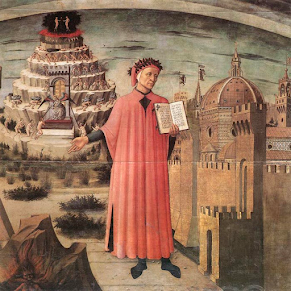
Poetry has the power to lead me along the path of interiority, just as prayer draws me into the closeness of God. When I pray, I am brought close to His presence. When I write a poem, I am brought into the closeness of the summit of poetry and blessed by its light.
Poetry, which arises from both the external and internal worlds (quaedam extra nos, quaedam intra nos), is a way of receptive listening with the heart.
Everything within me and out of me can be a sign of poetry’s voice—of God’s voice.
Without listening to those signs (quaedam extra nos, quaedam intra nos), there can be no poetry. Without listening to our hearts, we cannot hear God’s voice.
Poetry leads us to the summit of Beauty, THE Beauty that resides within us. Prayer leads us to God. Those who have the will to perceive its voice recognize Beauty as a sign of God.
Beauty draws us to its highest peak—the threshold where it “respicit rerum existentiam in arte aeterna” (turns its gaze back to the existence of things in eternal art). From that threshold, one can either ascend to the primum principium (God) or remain at the height of human achievement—poetry—without crossing over.
This choice depends on whether we consider poetry in itself (in sua puritate) or as seen in God’s mirror (in speculo/per speculum).
If we consider poetry in itself, it is a sudden light, revealing the depths that dwell within us (intus).
But if we see poetry per speculum Dei, it unfolds as a way of contemplation—the essence of what humanity was created for (creatus fuit homo habilis ad contemplationis quietem), when it turns its gaze back to God.

